W*SS Zine: Feminist News You Can Use at MSU

Subscribe to our Zine Email List by clicking here.
To access the blog of all our past Thought of The Day (TOTD) articles, click here.
What is a Zine?
pronounced [zEEn]
Historically, zines were DIY, hand-made, self-published booklets, often created by cutting out photos and text blocks and physically gluing them to the paper, then photocopying and distributing through underground methods. Zines are created to promote something, like us at WSS promoting gender equity. See here for some cool examples! Our idea of making our weekly newsletter a zine is to be self-published, personal, and informal. We publish weekly during the academic year.
Also, we are designing the WSS Zine to serve as a clearinghouse for information and a place where women's and gender RSOs, departments, and other groups can share information with MSU students. Please submit to us at wss@msu.edu.
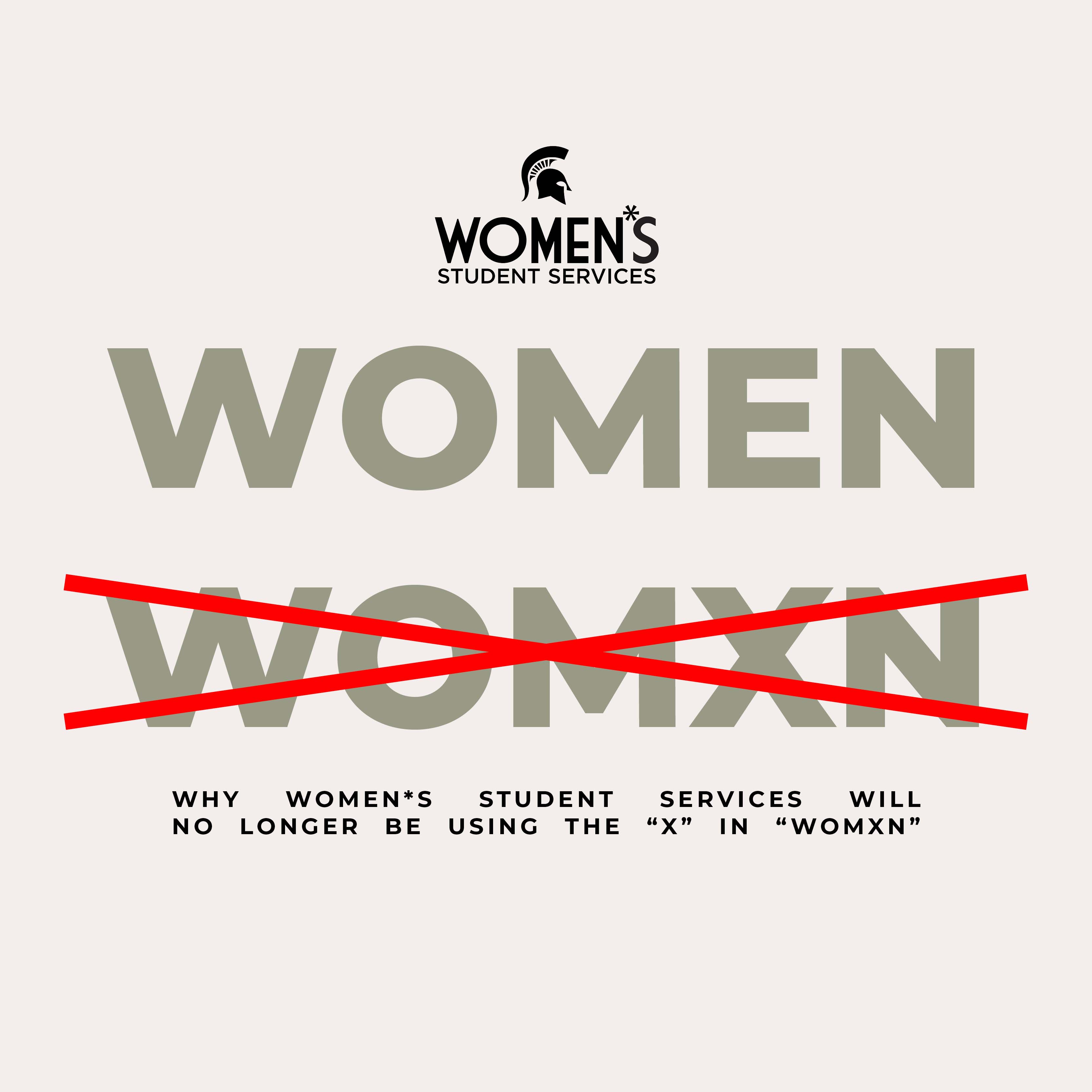
WOMEN, Not Womxn
April 6, 2021 - WSS Staff
Over the past several weeks, the staff and students involved in Women*s Student Services have engaged in an ongoing dialogue about spelling of the word WOMEN. We have listened to students, talked with our campus partners, and conducted our own research using online resources. Based on what we’ve heard through this feedback, we’ve determined we are no longer using an “X” in the word women. The word women is inclusive of all who identify as women. No modification of the word (by adding an “X”) is needed and no “alternative spelling” is required to make the word inclusive of trans women.
TOTD: A Bookworm’s Top 5: Women*s History Month Recommendations
March 29, 2021 - Heather Shea
During the pandemic, I’ve taken up “reading” (in quotes because often I read through audio books--which, in my mind, still counts!). For me, constant reading has been both an escape and a window into other times and places. As we near the end of Women*s HIstory Month, I’ve compiled a select list of five books that have recently hit my queue that amplify women’s voices. I am always looking for fiction and non-fiction that informs, educates, expands understanding. As you think about your summer reading list, I’d highly recommend any of these books!
TOTD: Why are there disparities in college basketball, anyway?
March 22, 2021 - Ashleigh Lowe
"I got something to show y'all. So, for the NCAA March Madness, the biggest tournament in college basketball for women, this is our weight room," Sedona Prince announced in a TikTok, pointing to six sets of weights in a corner. In comparison, the men’s weight room was large enough to be socially distanced and featured several weight stations. Prince’s post came just hours after the initial statement by Ali Kershner, a Stanford University Coach. Kerschner called on the NCAA to address the inequalities in amenities for men’s and women’s basketball. She writes, “these women want and deserve to be given the same opportunities.”
TOTD: Feminist and Queer Theory: A Healthy Partnership
March 15, 2021 - Gigi Shannon
Feminism and queer activism may seem like separate social movements: one advocating for women and the other advocating for individuals in the LGBTQIA+ community. However, like people, they are much more complex than that, and can be used together to advocate for everyone. Some people have even attempted to use this misunderstanding of who these movements are for to reverse the progress both movements have worked so hard to accomplish.
TOTD: Not Accepting Misogyny Within K-Dramas
March 9, 2021 - Ashleigh Lowe
A memorable feature of any Korean drama, or K-drama as they are commonly known, is the female-lead. They are often strong-willed, charismatic, and relatable. Despite the resolve of these characters, many older K-dramas are centered around the misogynistic belief that women are meant to be won.
TOTD: I’m (not) Sorry: Are you a serial apologizer suffering from the sorry syndrome?
March 1, 2021 - Karlee Moxley
Apologizing for things you didn’t do? In an effort to avoid conflict? For making a reasonable request because you don’t want to be an inconvenience? Apologizing for apologizing? Does this sound familiar? It sure does for me. “Sorry” is so ingrained in my vocabulary there are times I don’t even realize I said it until it is pointed out to me (the other day I apologized for sneezing… an actual uncontrollable bodily function!).
TOTD: “Will you accept this responsibility?”: Racism on The Bachelor
February 23, 2021 - Joslyn Miller
The Bachelor: the show many of us hate to love is now giving viewers of the franchise reasons to just hate it. Recently, allegations have come to light about contestant and front runner Rachael Kirkconnell. Images have surfaced of Kirkconnell attending an Old South antebellum-themed party, dressing in culturally appropriating costumes, sharing right-wing QAnon conspiracies on social media, and making fun of classmates in high school for liking and dating Black men.
TOTD: The Harmful Effects of Female Genital Circumcision
February 16, 2021 - Danielle James
Genital circumcision has been a tradition around the world for both male and females alike. In America males are often circumcised at birth while in other countries women are circumcised once they reach age of maturity. In regards to female genital circumcision (FGC), it has been debated whether these procedures are a right of passage honoring centuries of tradition or if it is a violation of human rights based on sexist practices.
TOTD: Lack of Diversity in Equestrian Sports
February 9, 2021 - Grace Sacoman
For the past fifteen years, I’ve been heavily immersed in the equestrian world. I began riding as a youngin’—around five or six—so all I’ve ever known was riding and the society it was attached to.
TOTD: In Praise of Feminist Art in Public Spaces
February 2, 2021 - Heather Shea
I’m writing this Thought of the Day from the vantage point of a professional feminist and an amateur art historian.
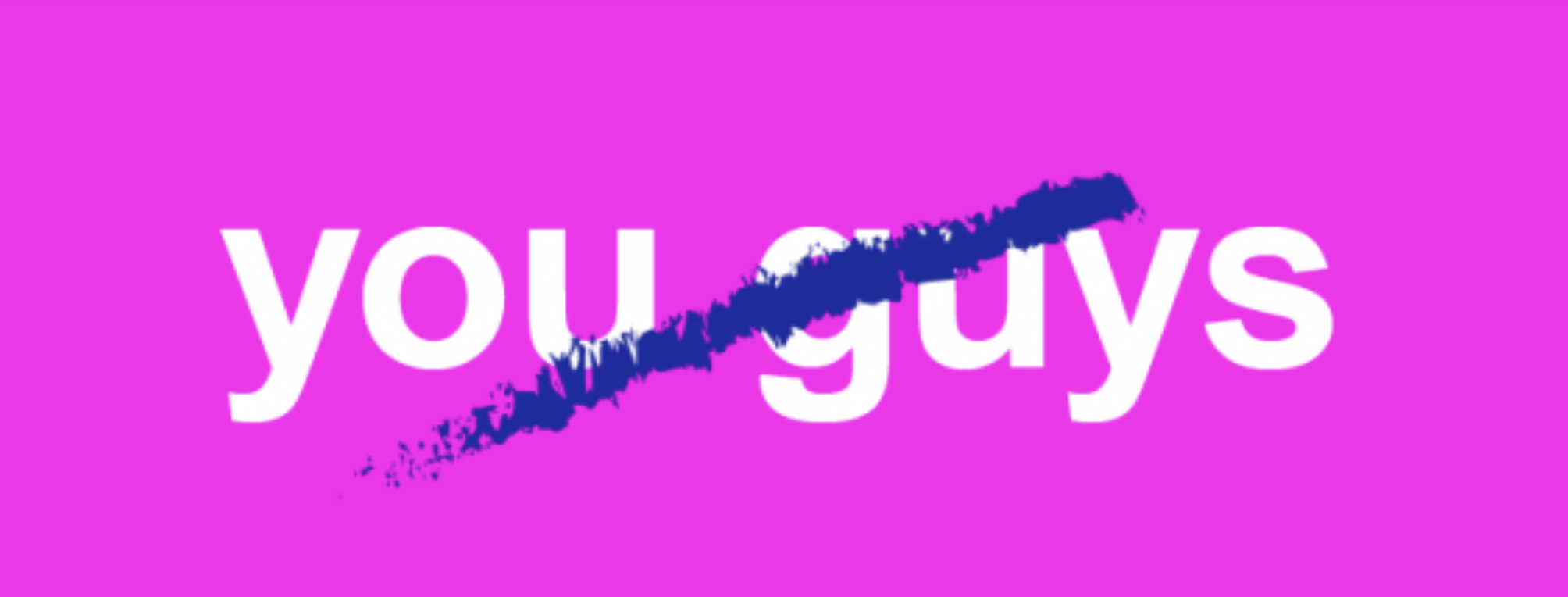
TOTD: The Problem With Phrases Like “You Guys"
January 26, 2021 - Gabby Wahla
Gendered language matters. It can make people feel excluded, increase feelings of imposter syndrome, and support patriarchal ideals and values in society. We know that some phrases, such as “you guys” are very location-bound, such as here in the midwest. But what about common words or phrases like man-made, manpower, manning a table, mankind, postman, fireman, freshman, chairman, or congressman (to name a few)?

TOTD: The Fight Against Human Trafficking and the Holidays
December 8, 2020 - Lexie Hampton
As the Holiday season steadily approaches, festivities and joyous spirits fill the atmosphere around us. Despite it being a time to come together to show appreciation for the connections we have with others, it’s also an important time to remain vigilant. In 2019 alone, over 20,000 people were stolen from their families and forced into human trafficking.

TOTD: The Pro-Choice Movement
November 17, 2020 - Shiksha Sneha
While Roe v. Wade (1973) is often cited in conversations about abortion, people have been having abortions since 1550 B.C. Although unsafe at that time, abortions were legal in all 50 states in the early 1800s and were not criminalized until the 1900s. With growing bans on abortions and penalizations to womxn who go through abortions, pro-choice activists took their case to the Supreme Court
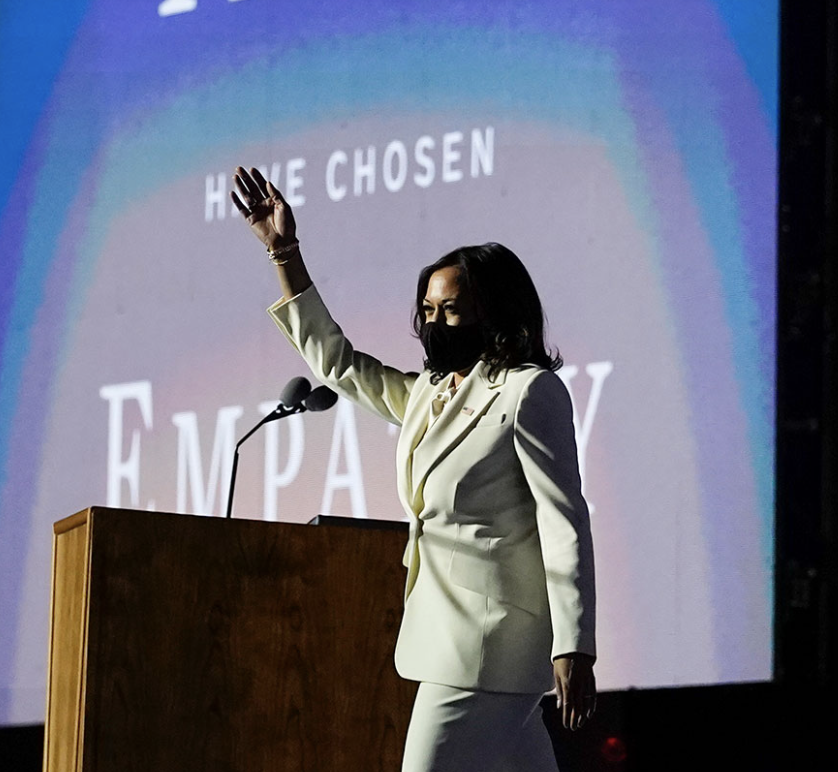
TOTD: The First Womxn Vice President-Elect
November 10, 2020 - May Lopez
This past weekend we witnessed history as Kamala Harris became the Vice President-elect of the United States of America. She is the first womxn to be elected to this position and her background embodies the elements that have made this country successful.
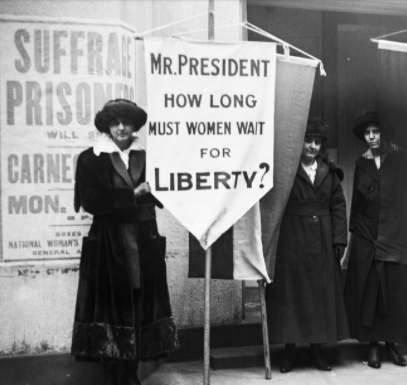
Women's Equality Day and the Anniversary of the 19th Amendment
August 26, 2020 - Gabby Wahla
Today is Women's Equality Day. In conjunction with today's celebration of women, this year we are also celebrating the 100 year anniversary of the passing of the 19th amendment, which gave "women" the right to vote.

WSS Weekly Zine: HBD, WSS!
July 31, 2020
This month, the staff in Women*s Student Services celebrated our office's FIRST BIRTHDAY! As we look back on our first official year on campus, we have much to be grateful for, amidst unprecedented challenges.
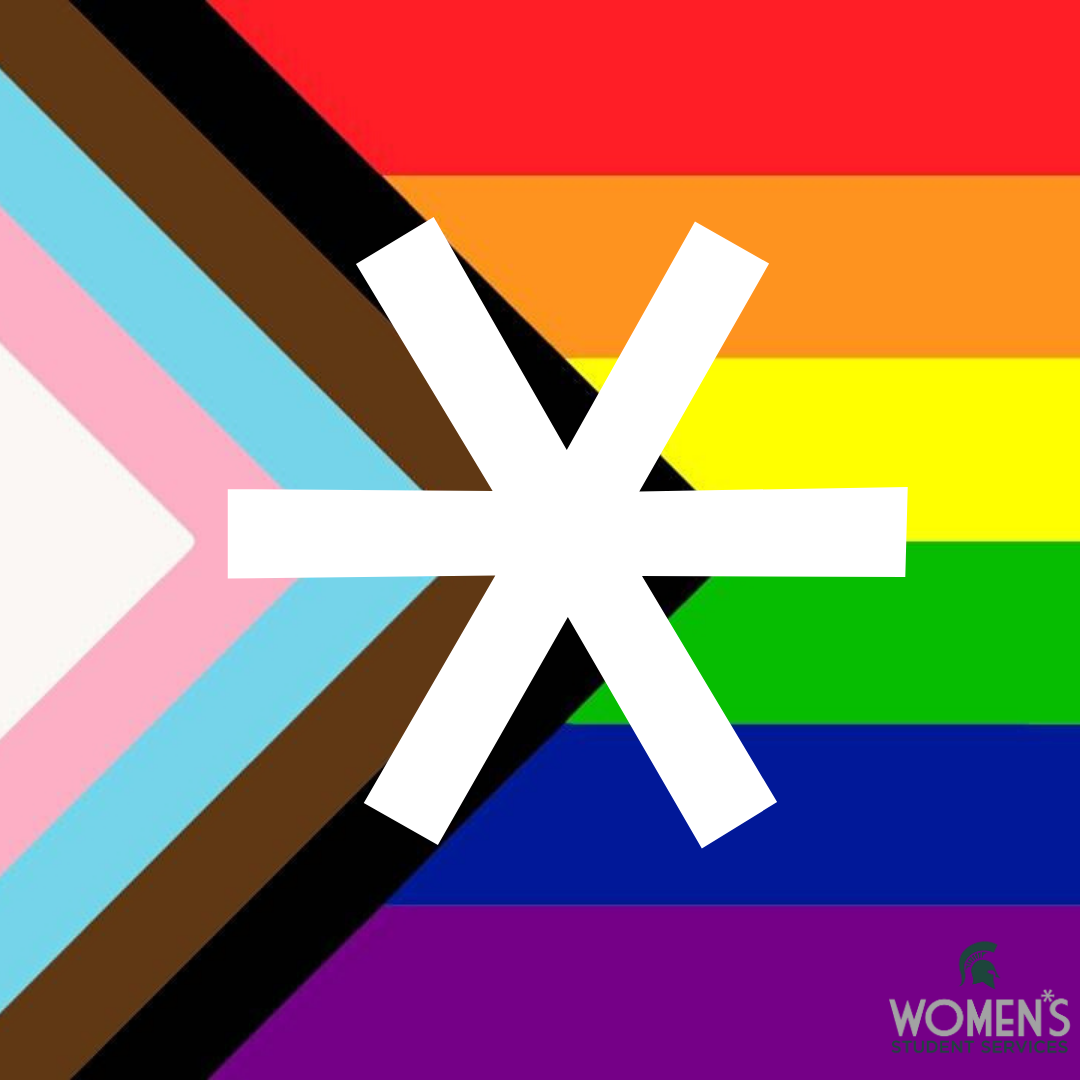
WSS Weekly Zine: June Pride
June 16, 2020 - Gabby Wahla, WSS GA
We at Women*s Student Services celebrate people of all genders and sexual identities and invite all students to express themselves freely. We also recognize the persistent fear in doing so within many communities. While Pride may often be depicted as a celebration of sexual identity, it is impossible to discuss sexuality without its attachment to gender. Today, Pride is more than just celebrating the freedom of expressing one’s sexuality - it also invites us to celebrate all expressions of gender.
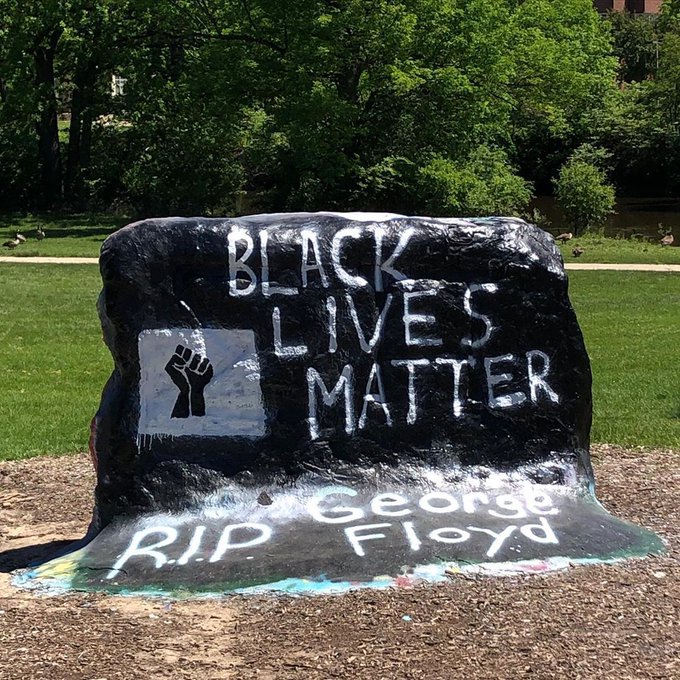
WSS Stands in Solidarity with Black Communities
June 3, 2020 - Heather and Gabby
Women*s Student Services at Michigan State University is deeply outraged by the continuation of racist and violent actions toward Black and African American communities in the United States. We, along with MSU, hold ourselves and our communities accountable for social change and acknowledge the pain and inequities caused by racism. We specifically acknowledge the heavy toll this places on Blacks and African Americans.
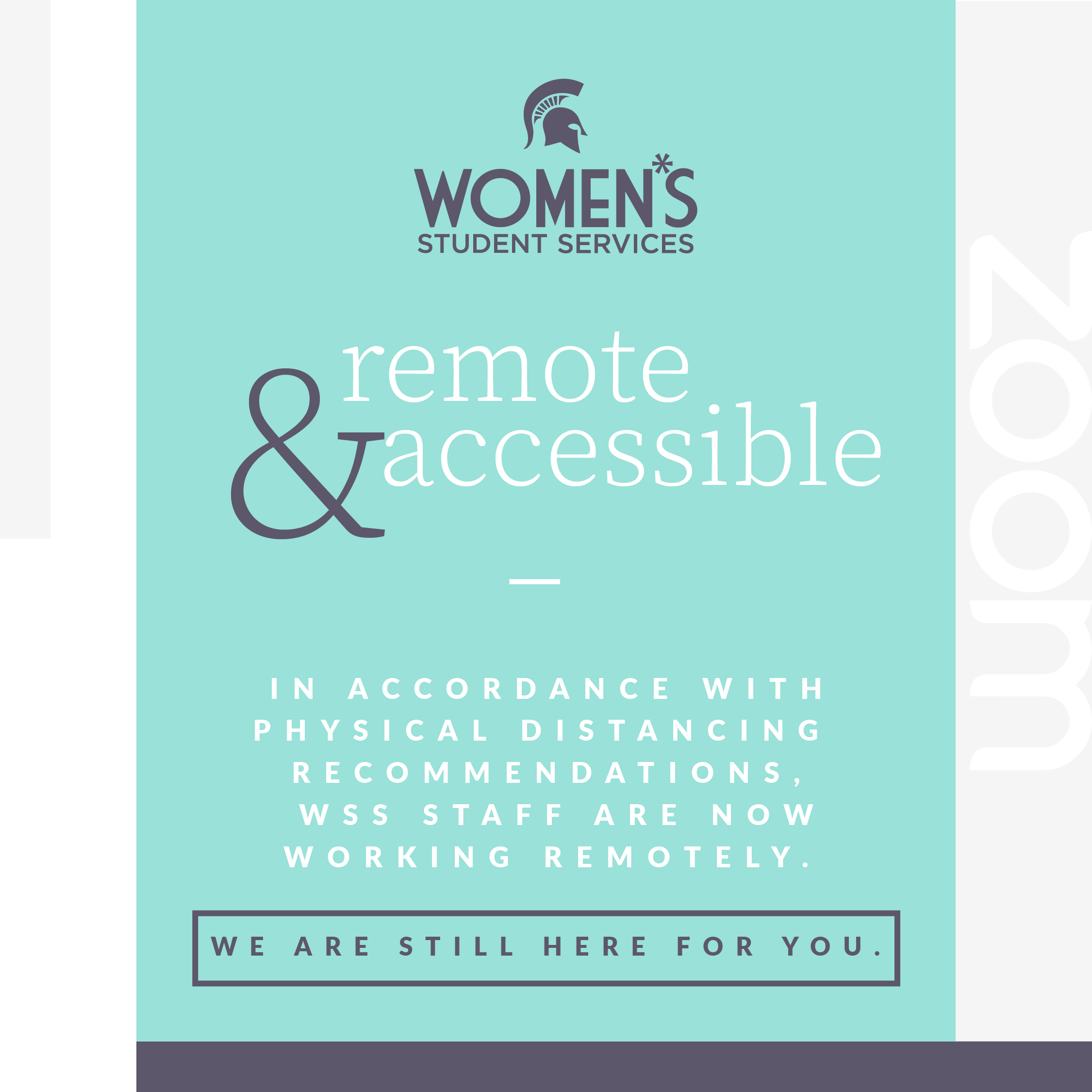
Many Opportunities to Stay Connected...
April 13, 2020 - WSS Staff
When many of us left campus over a month ago, I don't think anyone foresaw the challenges of remote learning and teaching. As the campus has ramped up its online resources for students and faculty to continue engagement in their educational endeavors and progress to degree, we in Student Affairs and Services have been thinking strategically and innovatively about maintaining student involvement, leadership, and co-curricular engagement experiences.
"Social" distancing is out, PHYSICAL distancing is in
April 6, 2020 - Gabby Wahla
We have no doubt you've heard the term "social distancing." If you haven't, it is the term going around as we distance ourselves from other to prevent the spread of COVID-19. However, for many of us in isolation in our homes, we may be experiencing loneliness, sadness, and some anxiety. Therefore, we in WSS want to encourage you to stop "social" distancing, and rather practice PHYSICAL distancing. By this we do not mean you should be interacting with people in person. Rather, please continue to socialize, just do it virtually. It is a civic and personal responsibility to your health and the health of others to be physical distancing during this time, but there is not need to socially distance yourself and increase those feelings of loneliness. Reach out to your friends/coworkers/classmates/family! Chat with people on social media! Whatever you want to do, try to find a way to do it virtually.
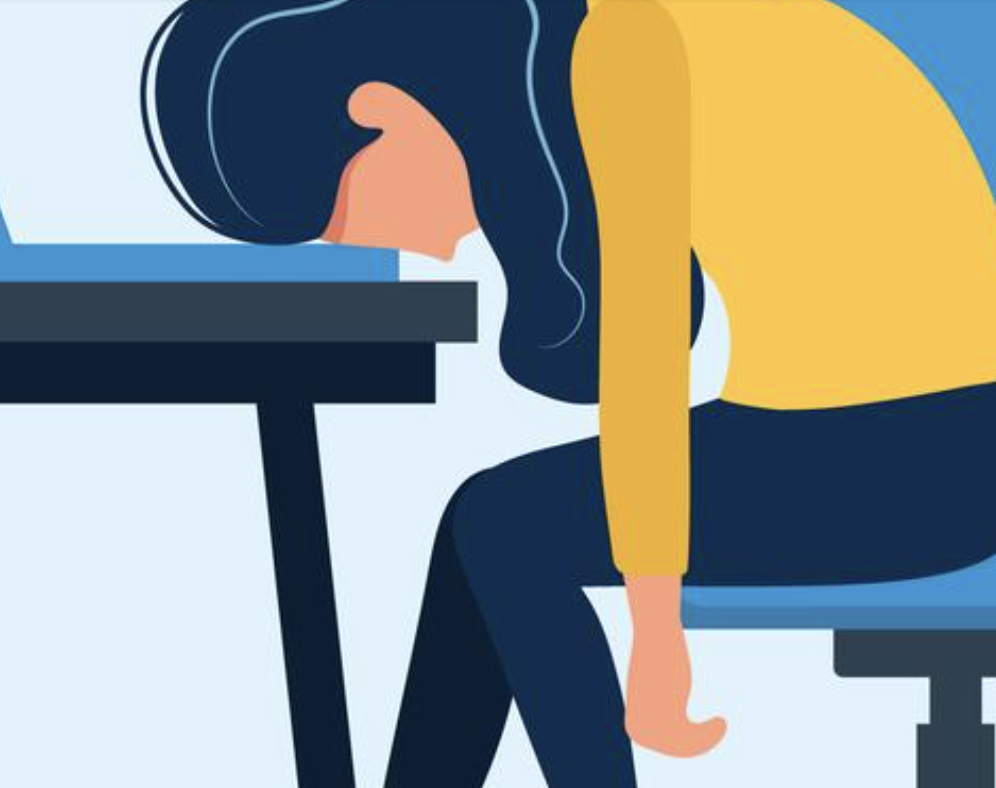
TOTD: Zoom Fatigue is Real
April 6, 2020 - Gabby Wahla
Zoom fatigue is real. Many students sit at their computers all day, spend their class times on Zoom, attend student organization meetings on Zoom, and maybe even work on Zoom. On top of all of those online requirements, many social aspects are also now held online.

